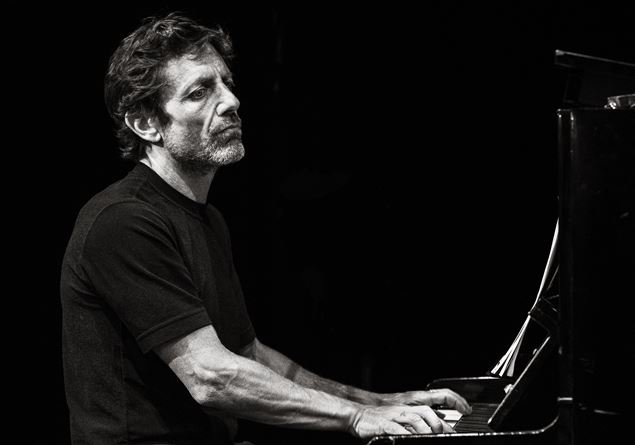
The cover of Angelo Mellone’s latest book
Angelo Mellone, journalist, Rai manager since 2010 and director of the Entertainment and Day Time Department for a year, is also a prolific and eclectic writer. It ranges from reportage to theatrical monologues – including, Goodbye to the South (2012), AcciaioMare (2013), South by rail (2014) e Ultimately (2023) – up to novels like No cross is missing (2015), Until the end (2019) e In the best families (2021) which was made into a film.
The last book, Before you wake up (CartaCanta Editore) followed a strange trajectory: it was supposed to be a collection of poems (another passion of the author) and it became a dialogue, of prose and verse, perfect for the theatre, which tells of the impossibility of understanding each other and communicating as writes the poet and landscape scientist Franco Arminio in the introduction: «What we can hope for is that sometimes we meet someone who wants to understand».
Mellone, what love is told in this book?
«More than a specific typology, I explore the relationship between love and truth expressed in a story suspended in time, without place, with two protagonists without a name but indicated only by their initials: D. and P. Theirs is a love with a date of expiration. Today it is a very fashionable concept. I often hear from many young people who, for fear of taking on responsibilities or being “hindered” in their work and career plans, already tell themselves, before starting, that it will be a fixed-term relationship. A very different approach compared to past generations.”
What is the expiration date?
«The two protagonists, who have a clandestine relationship, declare that their relationship will end on March 12, 2048. This date ploy is a way that I found to say that they find themselves bumping into a cage that they themselves built but whose they don’t have the key to get out because neither of them has the courage to overturn the table and say they were wrong to set a limit which then inexorably arrives and interrupts everything.”
Until we reach the last, fateful night.
«Yes, where he falls asleep and she talks to him, letting herself go and even telling things that had never been said until then. Then she falls asleep and he talks to her. Nobody listens to the other. The dialogue becomes monologue. Here, the crux of the story is precisely this: what do I tell you to tell the truth, or what I consider the truth, if you don’t listen to me? Each says important things but which are not accepted because the other is asleep. It is a total incommunicability which paradoxically however is full of empathy, pain, complicity.”
Why didn’t you include any references?
«The relationship between love and truth has no era. I want the reader to question what he reads without having to dwell on the characters, historical situations or geographical references. I advise those who are not single to read it as a couple because you can recognize each other.” How does this book fit into your production? «In the theatrical monologues that I wrote, the protagonist was me and my biographical experience: the South, my roots, my Taranto. This is a timeless story which is already the cornerstone of a stage representation.”
Would you like to write a novel about Rai?
«I would like to do something else, write the equivalent for the world of television of what the series Boris he represented for the world of cinema. The reality of TV always surpasses fantasy.”
What is it like to be director of Raiuno’s Day Time?
«Tiring but rewarding. Day Time is a segment that includes Rai 1 and Rai 2 and, in part, also Rai 3. There are many programmes: from news and in-depth programs to the story of the territory, from ecology to music up to game shows. The results are very good. Of course, some programs like Track 2 they didn’t go well also because we hurled placement. I am the senior manager of Rai, I have been following the Entertainment and Day Time Department for twelve years and it is a gigantic and working-class management, let’s say so, because it is the one that more than any other has the most internal productions. We are the little ants who fill the schedule every day of the year without ever stopping, not even in summer. The audience figures confirm the great solidity of the programming amidst so much nonsense and fake news.”
Are you referring to “TeleMeloni”?
«Also, and it is an invention that is convenient for many. I believe that Day Time is a guarantee of pluralism, freedom, inclusiveness. This does not mean that I have my own ideas and cultural positions.”
How would you define it?
«A conservative which is a wonderful term because it implies respect for identities which is also a distinctive feature of the programming I deal with at Rai with numerous narrative programmes, from archeology programs to green and energy sovereignty. I’ll give you an example: Green Line has excellent ratings because the theme of the story of the roots in the era of uprooting, of fragility, of liquidity means giving people the opportunity to discover that the Italian identity is founded on beauty and we are narrators of beauty. In recent years, the programs dedicated to the area have gone from 3 to 15. The next project is to talk about folk, one of the most widespread Italian popular musics with a great tradition.”







